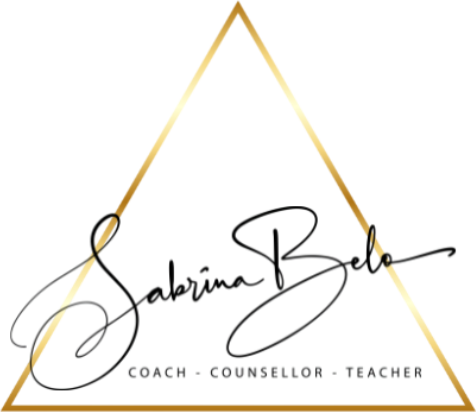It’s not going away. Coping skills for judgment, comparison, and cancel culture
How to stay grounded when experiences - and your thoughts - feel like they’re against you
You scroll past a post and feel the heat rise in your chest. Someone’s been called out online. Comments pile up, strangers weigh in, and your mind flickers to the times you’ve second-guessed yourself for fear of judgement.
Offline, it’s not much different: passing remarks, raised eyebrows, the subtle sting of comparison. Or finding out your friends didn’t invite you to that night out activating that same insecurity fearing rejection and react by staying small. In a world where cancel culture and constant measuring-up dominate the conversation, having reliable coping skills is no longer optional. They’re critical to keeping you steady when criticism, real or imagined, threatens to (or does) knock you off course.
Keep reading to learn your best way to respond (that doesn’t involve shrinking back or lashing out).
Why judgement hits so hard
We’re wired to want connection and acceptance - it’s part of being human. That’s why judgement can land like a punch, even if it’s under the radar. A side comment, an ignored message, a public critique; each one can trigger a feeling (like shame, doubt, or insecurity) and the instinct to protect ourselves.
For some, this builds into a constant low-level fear of judgement, shaping choices and silencing parts of who they are. Why do you internalize someone else’s opinion as truth? What story about myself am I living to react this way? Hold on a second…why do I not feel safe here to share how I really feel? When you understand how your nervous system is working behind your reaction, you can meet it with awareness instead of automatic self-doubt. Without this understanding, learning the right coping skills best for you may be difficult.
The weight of comparison
Endless highlight reels fill our feeds: curated vacations, flawless homes, perfect smiles. What you don’t see are the messy kitchens, tearful nights, or moments of doubt behind the scenes.
Over time, this distorted lens chips away at self-worth, fueling the urge to measure your life against someone else’s. Learning how to not compare yourself to others starts with recognizing the illusion and remembering that social media is rarely the full picture.
Pairing that awareness with self-compassion turns coping skills into a daily habit; one that keeps you grounded in your own progress rather than chasing someone else’s version of “enough.”
The sad reality is that it happens everywhere
Cancel culture doesn’t only happen on the internet. It can show up in real life when people are shut out, dismissed, or spoken about behind closed doors for being different. Sometimes it’s framed as holding others accountable, but it can just as easily slide into exclusion.
Sometimes, it’s the sting of being excluded by people who once stood beside you-now uncomfortable with your clarity, confidence, or conviction. When you name harm or hold others accountable, it can provoke defensiveness. Rather than reflect, some may label you as “too sensitive” or “too much,” turning your strength into a reason for dismissal. What’s framed as accountability from your end can be experienced as threat from theirs-and that’s when the quiet cancellations begin: the distancing, the gossip, the doors that quietly close.
The impact can be isolating, making you feel unsafe to show up as yourself. Building coping techniques for these moments means learning how to protect your self-worth, find spaces where you’re valued, and resist the pressure to conform.
Coping skills for these modern triggers
1. Pause before reacting
When judgment hits—be it online or face-to-face—your first instinct might be to fire back or shut down. Instead, give yourself a moment to breathe, notice your body, and choose your response. This simple habit strengthens your coping skills and helps you act from clarity, not reactivity.
2. Audit your inputs
What you consume shapes how you see yourself. If certain accounts or conversations with people leave you feeling inadequate, cut them out or limit your time there. Reducing toxic comparisons is a powerful step in how to not compare yourself to others and reclaiming mental space for what matters.
3. Name the trigger
Before reacting, pinpoint what’s really happening. Is it judgment? Comparison? A brush with cancel culture? Labeling the source helps you choose the right coping techniques - whether that’s setting a boundary, seeking perspective, or simply stepping away until you feel grounded again.
4. Find safe spaces
You don’t have to share your full self with everyone. Seek out communities, friendships, or groups (like “Permission To Be”, the one Connie & I are hosting beginning September 23, 2025) where you feel accepted and supported. These safe spaces make it easier to drop the armor that comes with a constant fear of judgement and practice authentic connection without risk.
5. Practice micro-boundaries
Boundaries don’t have to be big declarations. They can be as simple as logging off, muting a thread, or walking away from a draining conversation. These micro-actions protect your coping skills from being worn down by repeated exposure to negativity or criticism.
Why coping skills are so important
Judgment, comparison, and cancel culture aren’t going away anytime soon, but your response to them can change. Strong coping skills give you the stability to navigate hard moments without losing your sense of self. They help you pause instead of react, choose your own values over public opinion, and protect your mental health in a world that often rewards conformity.
With practice, these skills become second nature, making it easier to stand firm in who you are and connect with people who value the real you.
If you’re feeling weighed down by judgment or comparison, counseling can give you the tools and perspective to handle these pressures with more confidence. Head to Dig a Little Deeper to book with me and begin your journey to reconnection with yourself.
